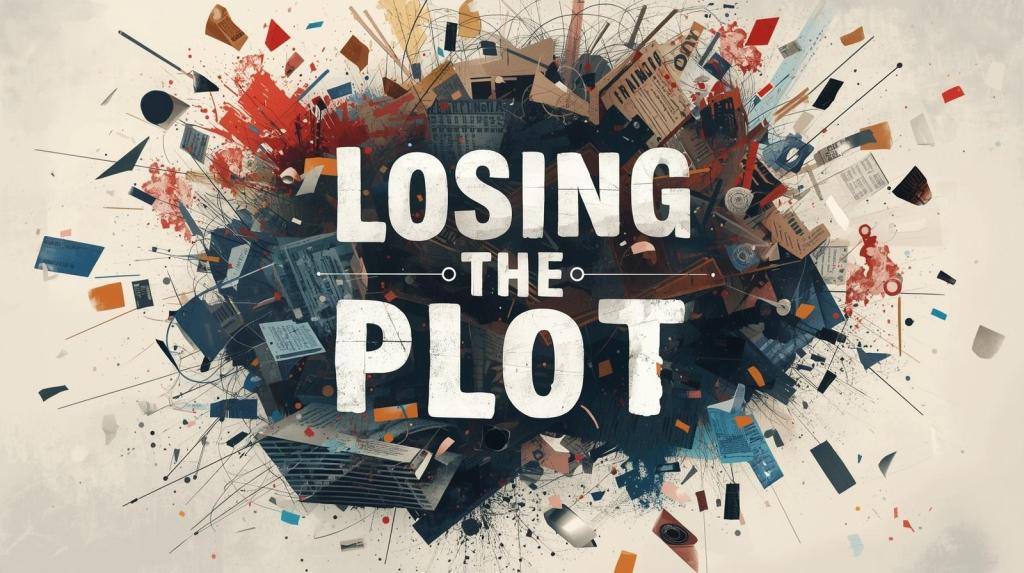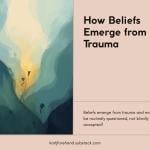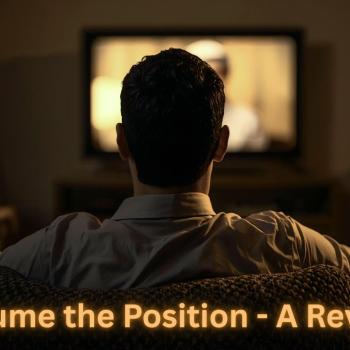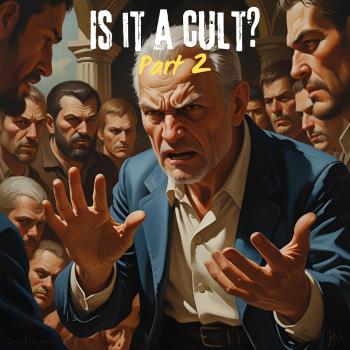
Losing the Plot
A few days ago, one of my old church members sent me a message that started with the popular phrase, “Karl, I’m worried about you.” Anyone who has ever been in ministry understands what that means. It indicates that you are not doing what they expect, and as a result, they feel the need to persuade you to think exactly like them again. She gently chastised me in that soft Christian way, letting me know she was even more upset about my posting and sharing my opinions with others.
I later found out that a member of her family was the talk of the town for infidelity. It’s pretty standard in smaller cities, or maybe we learn sooner because people talk. I reminded her that one reason I left Christianity was because of people who mistreated me, and one of them was her daughter. She dismissed that comment and immediately went to claim the moral high ground of what she considered “true” Christians.
Apparently, I am her scapegoat, which she blames for her struggles. What I can offer her—and I am qualified to do so—is to listen and provide comfort during her difficulties. But she has never given me that chance because, since I am not a practicing Christian who does it exactly like her, I am considered immoral or socially irresponsible.
Another Example of Losing the Plot
Another example is the church we attended between two of our assignments. Recently, the new pastor has led them to become quite political. They helped remove a man who was voluntarily serving on a library board simply because he was gay. This pastor encouraged them from the pulpit not to worry about violating IRS rules when he urged them to vote for a specific candidate in a local election. A few days ago, he was hoping to draw a crowd to mourn the loss of Charlie Kirk, a figure known for causing division and promoting bigotry.
I have never seen anything like the followers of “The Prince of Peace” who are now openly defending unapologetically cruel people. The pastor threw the bait to the lions, essentially saying in his post, “Watch how the world responds to this.” People on the outside tried to express their disappointment with Charlie Kirk and his harsh, biting comments about African American women and other marginalized groups. Still, the Christians retreated to Bible verses about being persecuted to justify their actions and behavior.
Marc Driscoll was just the warm-up to the mess we are in now.
When the main reason someone becomes a hero—causing most NFL teams to honor him with a moment of silence—is “owning” the group they disagree with, then not just Christianity but America has lost its way. He didn’t engage in honest debates with his opponents; instead, he talked over and humiliated young freshmen on college campuses. This is not my idea of loving your neighbor.
Defining Losing the Plot
Losing the plot is when we act irrationally and forget about the original plans or goals. I quickly lose interest in books or movies that don’t follow a straightforward plotline. Yes, some surprises and realizations happen, not to mention, I become emotionally invested in the outcome. But when our stories betray their main point or original intent, we find ourselves reacting to everything sensational or challenging to understand. This even occurs in songs when pious listeners forget the meaning of the arrangement and get shocked by a particular word they don’t like.
This often happens in the course of human history. I don’t think I have to remind the reader that Hitler’s army was almost entirely Catholic and Protestant. That’s right, they were about 95% Christian, and the groups in power right now are using a similar playbook, which is called Project 2025, instead of Mein Kampf. The Christians of Nazi Germany were manipulated by the sensationalism of a ruthless dictator and strayed from their core goal of loving their neighbor. We’ve lost sight of compassion when kindness is shown through killing.
Killing them with kindness is not an instruction to destroy others. We’ve lost the plot.
As I worked through my deconstruction, I don’t want to fully exonerate people who are more progressive, woke, or inclusive. I commend them for seeking truth, peace, and genuine love for their neighbor. However, from those I’ve met on this journey, I observe that we are all walking wounded, and we sometimes get more excited about yelling at the darkness rather than shining a light. Honestly, no one is immune.
Over the past decade, I have occasionally reached out to people like the woman in my first example. I sometimes talk with an old pastor, mentor, or friend, but these conversations are usually not as productive as I hope. Overall, people tend to be hesitant to change their approach or beliefs to find their way back to an authentic life, one where they step outside the safety and security of their tribe.
Ten years ago, I began that journey, but I still hesitate to claim moral superiority, even though I feel my life is more stable and productive now. My actions seem more genuine, and I am less likely to go through the motions of defending imperfect people just because they’re in my group.
The religious people who now criticize me for thinking differently from them once praised me for influencing their children the way they wanted, mainly by reinforcing their firmly held beliefs.
We shouldn’t keep demonizing everyone who doesn’t think exactly like us. Every day, I meet atheists, agnostics, and even pagans, witches, and various religious people who live incredibly moral lives. They pay their taxes, raise their children, contribute to society, and genuinely love their neighbors much more than the people I grew up with. My experience with the “dyed in the wool” Baptists of my origin story, who were often very cruel and usually covered for each other’s “indiscretions,” was not ideal in any way and didn’t follow the Great Commandment.
Is there a way forward when we are losing the plot?
On our new podcast, The Unlearning Curve, we’ve been sharing our frustration with situations like this, and quickly, we found ourselves encouraging each other to do two things.
- Think Globally
- Act Locally
Brené Brown says, “People are hard to hate up close. Move in.” That’s why we tend to support those in our congregations and political groups. We believe we know them, or at least we think we do, making it hard to demonize or try to destroy someone within our own circle. The only exception is when someone disagrees with us in a church meeting; then all bets are off.
The times I felt most lost in my life were not ultimately solved by joining a group. Christianity promised me this, but it didn’t deliver. I have given my tithes not only to the church but also to political organizations at times. Yet, none of that freed me from my personal responsibility to live authentically and truly consider the needs of the “least of these.” We need a connection with individual people without the requirement to conform to a group. Most people, when given love and connection, find their morality in simple things, not in demonizing the other group, the world, or the “sinful.”
I’m waiting to see a copy of Tia Levings’ new book titled, “I Belong to Me.” I can’t endorse it yet because I haven’t read it, but I hope the title will serve as a reminder of this important point. I’m growing too old to struggle through the confusing dance of conforming to the group instead of staying true to myself. Labeling people as “other” is a construct; we are all humans, and most of us face similar challenges with the demands of being human.
Churches would do well to remember the humanity of the people they are trying to destroy!
I love a good story, especially in movies or books, but when I lose the plot, I sometimes have to rewind or turn the pages back to redefine the purpose of the adventure.
Be where you are, Be who you are, Be at peace!
Karl Forehand
The Real Neuroscience of Religion – Doing Drugs in Church

















